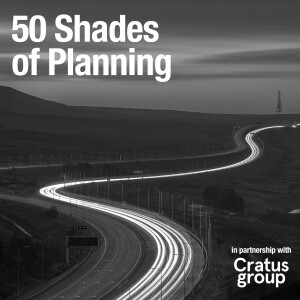
Consensus between economists is rare, but almost all agree that there is a moral argument for the taxation of land.
Planning reform, death and taxes have long been three of life’s certainties. Land taxation and the concept of betterment dates back at least to the time of Henry VI who is thought to have captured the value of land improved by royal investment in flood defences.
Winston Churchill spoke in 1919 of the “unearned increment” accrued by landowners following public investment in infrastructure and called for the state to capture more of this uplift for the public benefit.
The MHCLG Select Committee concluded in it’s 2018 Land Value Capture report that ‘there is scope for central and local government to claim a greater proportion of land value increases through reforms to existing taxes and charges, improvements to compulsory purchase powers, or through new mechanisms of land value capture.’
History has shown though that attempts to capture land value increases have had mixed success. Is it actually possible to capture a fair share for the community without discouraging owners from bringing land to market? Liz Peace, referring to her work as Chair of the 2017 CIL Review Group, said that ‘it is probably the most intellectually difficult thing I have ever grappled with’.
Councillor Martin Tett of the Local Government Association told the MHCLG Select Committee that “if it was easy everyone would have done it years ago”.
How much value is it right to capture, how should it be captured and who should spend it on what?
Sam Stafford puts these questions to Richard Harwood OBE QC, Toby Lloyd and Gilian Macinnes.
Richard (@richardharwood2) is Joint Head of Chambers at 39 Essex Chambers and a case editor of the Journal of Planning and Environment Law
Toby (@tobylloyd) is a consultant at BuiltPlace, former Head of Policy at Shelter and a former special advisor inside No. 10.
Gilian (@GilianGMAC) is a Director at Gilian Macinnes Associates, Interim Head of Planning & Development at Ashford Borough Council and a member of the CIL Review Group.
Some accompanying reading.
'Land Value Capture: Attitudes from the housebuilding industry' by RICS.
https://www.rics.org/uk/news-insight/research/research-reports/land-value-capture-attitudes-from-the-house-building-industry-on-alternative-mechanisms/
The Compulsory Purchase Association's submission to the MHCLG Committee.
https://www.compulsorypurchaseassociation.org/files/Submission-to-the-Housing,-Communities-and-Local-Government-Committee.pdf
The MHCLG Committee's Land Value Capture report.
https://www.compulsorypurchaseassociation.org/files/House-of-Commons---LVC---Committee-Report---Sept-2018.pdf
'Land Value Capture' by Richard Harwood.
http://www.compulsorypurchaseassociation.org/files/Land-Value-Capture-paper-final.pdf
'A New Approach To Developer Contributions' by the CIL Review Team.
https://assets.publishing.service.gov.uk/government/uploads/system/uploads/attachment_data/file/589637/CIL_REPORT_2016.pdf
'Grounds for Change - The case for land reform in modern England' by Shelter.
https://england.shelter.org.uk/__data/assets/pdf_file/0010/1779418/Grounds_For_Change.pdf
Planning for the Future; Challenges of introducing a new Infrastructure Levy need to be addressed' by Christine Whitehead, Tony Crook and John Henneberry.
https://blogs.lse.ac.uk/lselondon/planning-for-the-future-challenges-of-introducing-a-new-infrastructure-levy-need-to-be-addressed/
Some accompanying listening.
Taxman by The Beatles.
https://www.youtube.com/watch?v=0DGn7eUU4kA
This Land Is Your Land by My Morning Jacket (Woody Guthrie cover).
https://www.youtube.com/watch?v=5AvTezD4XIU
More Episodes
 2024-10-19
2024-10-19
 2024-10-12
2024-10-12
 2024-10-05
2024-10-05
 2024-09-21
2024-09-21
 2024-09-07
2024-09-07
 2024-08-31
2024-08-31
 2024-08-17
2024-08-17
 2024-08-03
2024-08-03
 2024-07-20
2024-07-20
 2024-07-06
2024-07-06
 2024-06-22
2024-06-22
 2024-06-15
2024-06-15
 2024-06-01
2024-06-01
 2024-05-18
2024-05-18
 2024-05-04
2024-05-04
 2024-04-20
2024-04-20
 2024-04-13
2024-04-13
 2024-03-23
2024-03-23
 2024-03-09
2024-03-09
 2024-02-24
2024-02-24
Create your
podcast in
minutes
- Full-featured podcast site
- Unlimited storage and bandwidth
- Comprehensive podcast stats
- Distribute to Apple Podcasts, Spotify, and more
- Make money with your podcast
It is Free
- Privacy Policy
- Cookie Policy
- Terms of Use
- Consent Preferences
- Copyright © 2015-2024 Podbean.com





